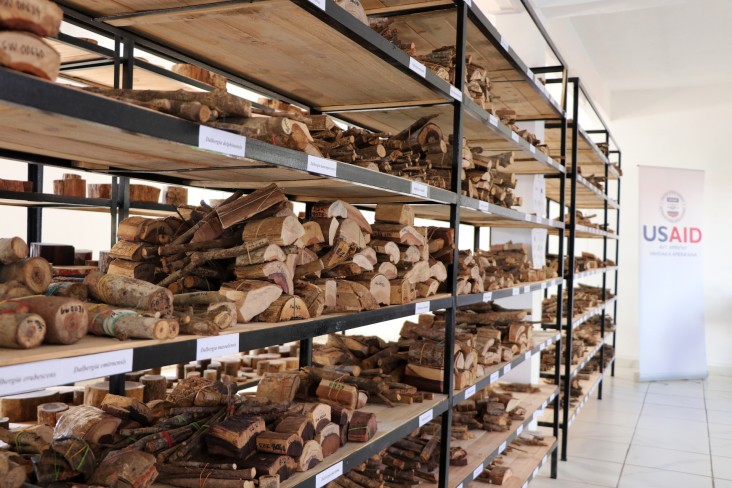Press Release Shim
Speeches Shim

$200,000 USAID PEER Research Grant produces tool to curb illicit Rosewood trafficking
For Immediate Release
ANTANANARIVO - Logging and trafficking on local and international markets threatens Malagasy precious hardwoods--like rosewood, palisander, and ebony--with extinction. These activities have devastating impacts on biodiversity and sustainable development and are difficult to combat without a tool to accurately identify the location of threatened hardwood species.
In response to this critical issue, the University of Antananarivo Department of Ecology and Plant Biology, with funding from the U.S. Government, through the United States Agency for International Development (USAID), and support from the U.S. National Academies of Sciences, Engineering and Medicine, has built Madagascar’s second precious hardwood reference library, or Xylarium.
The reference library is a critical tool to help prevent the illicit trafficking and extinction in the wild of precious Malagasy hardwoods. This library contains samples of all Malagasy hardwood species and will inform a database that may be used as a reference by scientists, customs agents, law enforcement and others to identify these precious hardwood species quickly and accurately in order to help protect them.
The USAID-funded Partnerships for Enhanced Engagement in Research (PEER) program awarded University of Antananarivo professor Dr. Bako Harisoa Ravaomanalina $200,000 to support her research, including creating the Xylarium reference collection. PEER is a competitive grants program that helps international scientists and researchers address challenges of importance to both U.S. and local governments. The Xylarium is located at the University of Antananarivo.
In addition to providing funding for research and the reference collection, USAID, through a partnership with the United States Forest Service, donated two Xylotrons to the University of Antananarivo. Xylotrons use machine imaging to identify tree species quickly and precisely.
Dr. Ravaomanalina is an inspiration to many at the University for her support of female scientists, and she was also the driving force behind the project to build the Xylarium. She is the first researcher in her department to win a grant of this size. “This reference library is the result of tremendous efforts by Malagasy scientists, particularly female scientists here at the University,” said Dr. Ravaomanalina. “This research project provided me with the opportunity to build this reference library and also to help my students gain essential training and experience.”
The U.S. Government supports the protection of Malagasy natural resources from exploitation through USAID-funded environment activities. Since 2013 USAID has committed $53 million towards programs that combat wildlife and precious hardwood trafficking, strengthen natural resource governance, improve forest and marine area management, and increase economic opportunities for people living near protected areas. Under the Eliminate, Neutralize, and Disrupt (END) Wildlife Trafficking Act, the United States has designated Madagascar as a “Focus Country” and “Country of Concern” and is working with the Government of Madagascar to fight corruption and the illegal trade of natural resources.

Comment
Make a general inquiry or suggest an improvement.